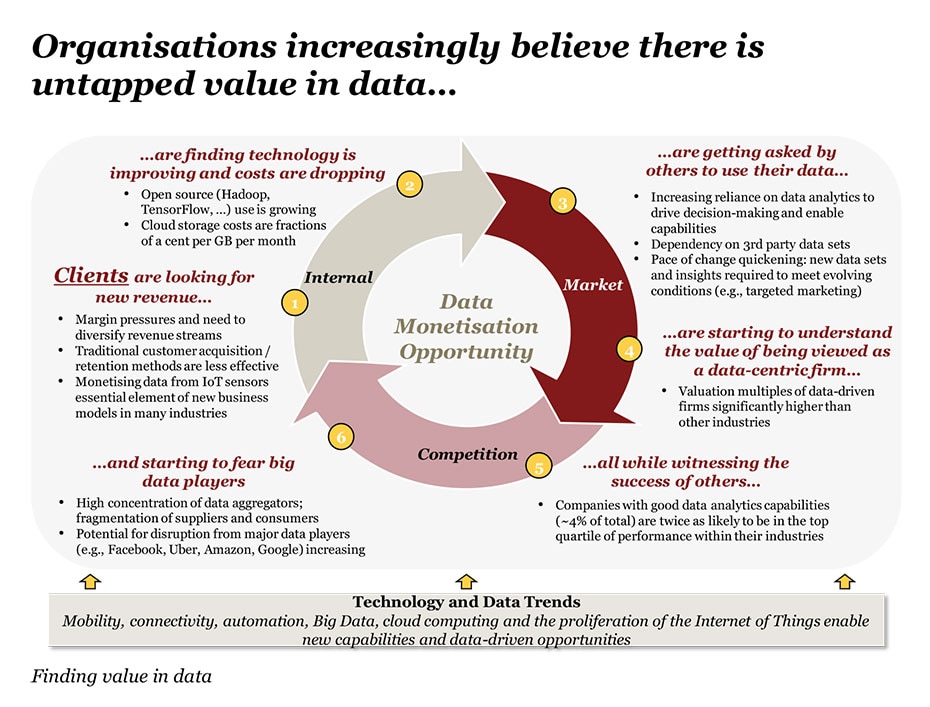As advanced economies continue their transition from physical production to services and intangible assets, the importance of information has never been greater. More and more organisations are thinking about how they harness the power of data analytics, artificial intelligence and ‘big data’ and how they can make significant investments.
But, we believe that you can’t start with data, you need to start with where and how you want to create value in your business, then move to data.
Many organisations are looking to make significant investments in data assets, but without the appropriate strategy, they run the risk of putting the cart before the horse and making poor and regressive investment decisions.
To help organisations reduce risk, PwC has developed a robust approach to succeeding in data.
...But, first and foremost, start with value before data
As a first step, you should spend less time thinking about how much data you have, where it comes from and how to can use it. Instead, you should start by identifying where your organisation might create more value than your competitors and then understand what data assets you need to make that happen. Only at that point you can develop a clear understanding of the investments you need to make in data.
These investments need to be consistent with your business strategy and you will have to spend money on the boring but important “utility processes” like data integrity and plumbing before you spend on “shiny objects” such as predictive models and AI.
We’ve seen many cases where clients were excited about the prospect of creating entirely new businesses and new sources of revenue in what seems to be the lucrative and accessible new area of big data, analytics, AI and ‘rich content’. In a few cases they were right, but more often, they weren’t. The opportunity, which seemed large at the outset, turned out to be small and difficult after a costly, unfocused and inefficient implementation that left them fearing repeating the process.
Conversely, organisations that took the effort to truly understand the potential strategic uses of and value of their data were able to execute appropriately, and they were able to avoid costly technology implementation programs that fell short of expectations.
By following a robust, strategic led process, you can link explicitly your strategy to your data, clarify what data you own and understand how valuable it is and to whom. You can create realistic aspirations for monetising your data, and you can prove your right to succeed by testing and overcoming areas of potential failure. You can move from an unsubstantiated assumption about the value of your data to a more informed and business linked understanding of its worth in terms of its use to current and prospective customers, its stand-alone commercialization potential, and, most importantly its potential to enhance your current business. That is the true value of data.
In summary
It is tempting for organisations in to jump on the data investment bandwagon for fear of being left behind. Those that adopt a strategic, systematic and diligent approach to appraising data investments will make the right investments and reap the rewards.
Myth-busting: Data is not, despite the headlines, the new oil. To continue the analogy, most data is hidden, polluted, unprocessable and too expensive to extract in a meaningful format. There are ‘supermajors’ in Amazon, Google, Apple, Facebook, etc., but there are no ‘national data companies’ other than China, and very few nimble, independent data miners and traders. You’re unlikely to be fit and ready to join this highly competitive ‘data industry’.



